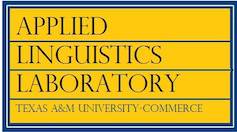Reconsidering language teaching through a focus on humor
DOI:
https://doi.org/10.21283/2376905X.1.15Keywords:
HUMOR, LANGUAGE PLAY, SECOND LANGUAGE PEDAGOGYAbstract
Formal language education is often predicated on a series of modernist fictions that greatly simplify the nature of language and the process of communication. Acts of linguistic creativity involving humor and language play are frequently either ignored or considered deviant. In this paper, we contribute to ongoing efforts to re-conceptualize language education in ways that make use of more robust (and less modernist) theories of language and communication. We revisit calls for more pedagogical focus on humor and language play and illustrate how more attention to these types of language might help us to move away from some of the classroom fictions that currently constrain teachers and learners alike. Specifically, we present recent conceptions of language and of communication, and discuss how, in light of these, humor and language play can be used to increase learners’ metalinguistic awareness and expand their communicative/interpretive repertoires.
Downloads
Published
How to Cite
License
Copyright (c) 2014 Nancy Bell

This work is licensed under a Creative Commons Attribution 4.0 International License.


